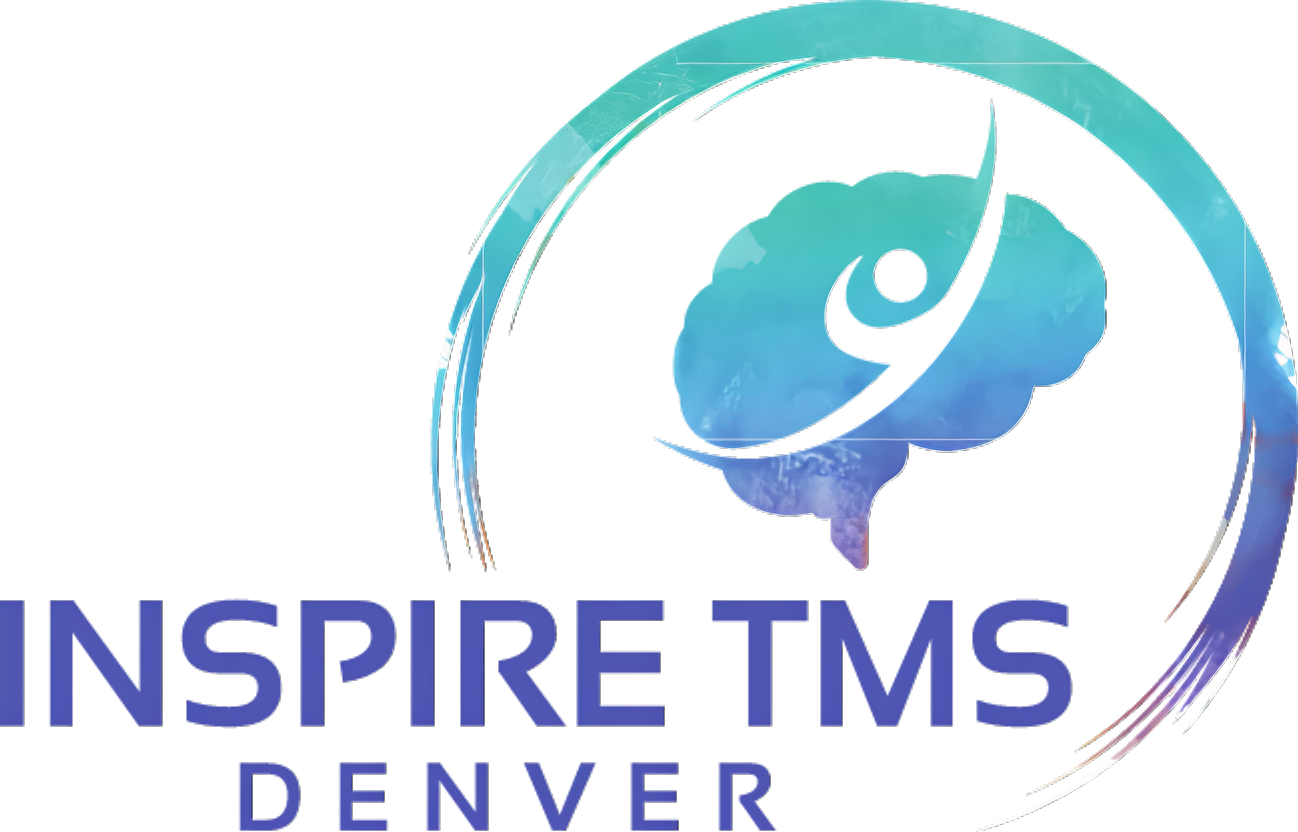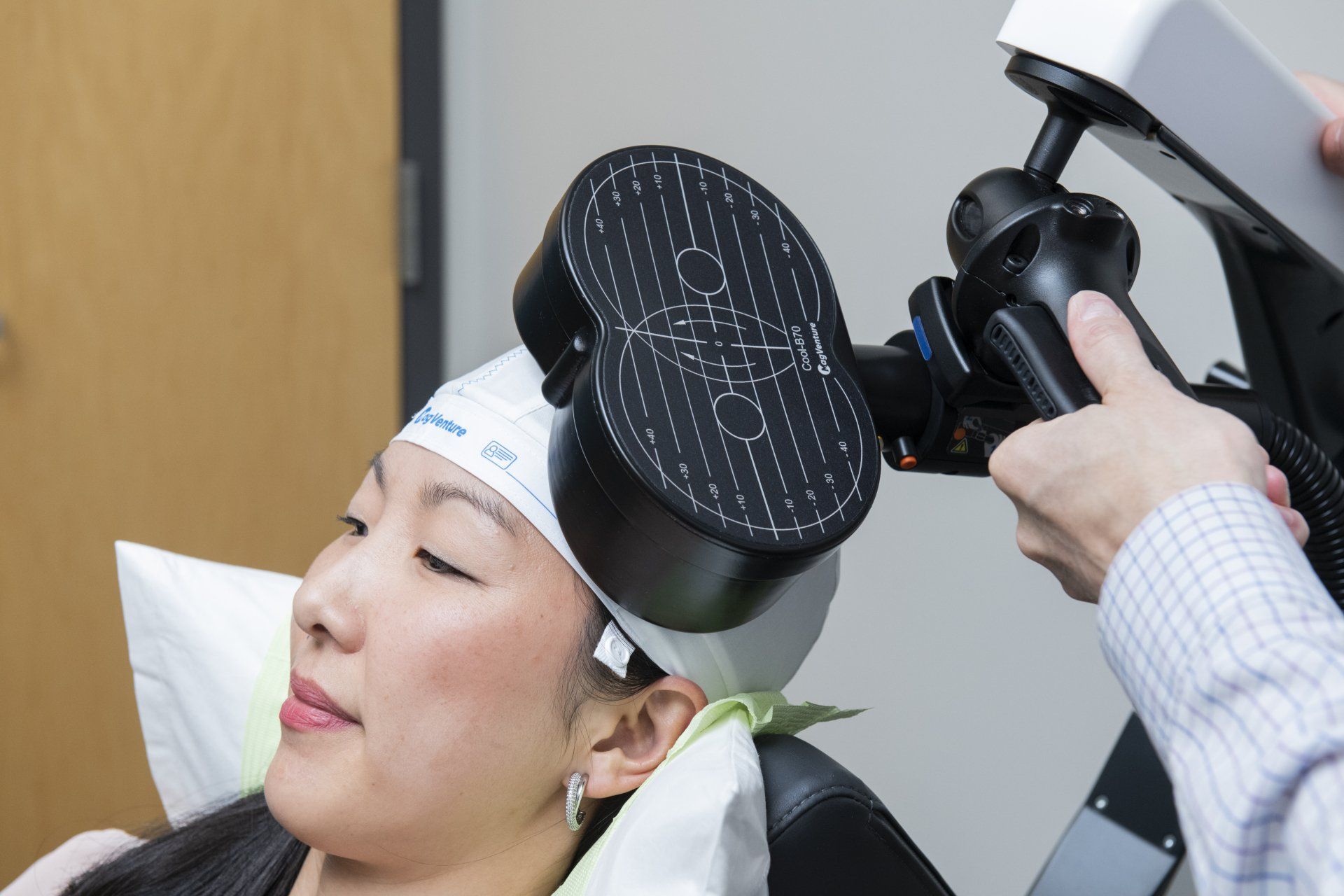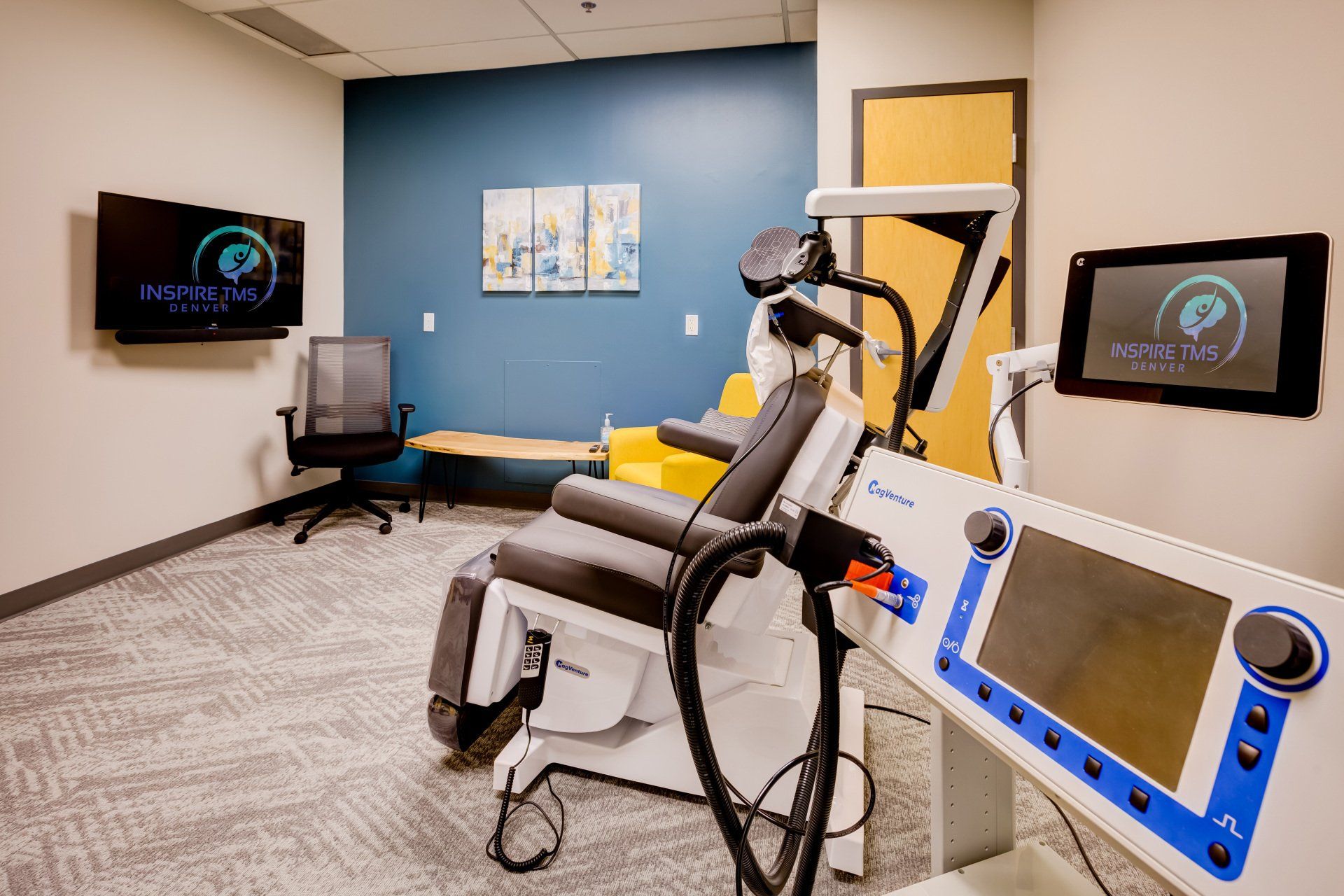LOCATION
340 East 1st Avenue, Suite 333 Broomfield, CO 80020
PHONE
720-446-8675
BUSINESS HOURS
- Mon - Fri
- -
- Sat - Sun
- Closed
Response Rates
10,000+ Treatments Completed
Biploar Depression Test
Online Bipolar Depression Test
If you have concerns or identify with many of the symptoms, it is important to book an appointment with your primary care doctor or a mental health provider. In the meantime, this test is not a diagnostic tool, but a high score may indicate a chance for Bipolar. As this article demonstrates, Bipolar is a common mental health disorder. There are treatments available to successfully manage symptoms of Bipolar, including
TMS therapy. Take the quiz below to see if Bipolar might be present for you.
Do you experience chronic or long-term episodes of depression separated by periods of extreme excitement and euphoria? Are these extreme changes in mood affecting your life and preventing you from achieving a balanced lifestyle with work, home, and relationships? Do you feel alone and frightened about why you are like this?
The crucial message is that you are not alone.
The World Health Organization confirmed that 40 million people (about twice the population of New York) were diagnosed with bipolar disorder in 2019 and that number has increased significantly since the pandemic. Roughly 2.8 percent of all U.S. adults (https://www.nimh.nih.gov/health/statistics/bipolar-disorder) have had bipolar disorder in the past year. The reality is that Bipolar Disorder is a common, everyday condition that millions of people are living with every day.
The reality is that Bipolar Disorder is a common, everyday condition that millions of people are living with every day.
What Is Bipolar Disorder?
The prefix ‘bi’ is used to signify two, e.g. ‘bicycle or bilingual’. Hence ‘bipolar’ refers to two ‘poles’ of emotional energy and their extreme opposites. Bipolar disorder is a condition that involves episodes of clinical depression, with sadness, despair, and apathy, punctuated with alternate periods of huge elation, animation, and excitement. This acute happiness phase is also known as ‘mania’ and Bipolar Disorder was previously known as Manic Depressive Disorder. As with most conditions, there is a broad spectrum of Bipolar from mild to more extreme episodes of depression and mania. Suicidal thoughts and behaviors are unfortunately quite common in Bipolar Disorder. (In the event of any medical emergency including suicidal ideation call 911 immediately).
The good news is that conventional treatments are also significantly effective in managing the condition and subsequently improving outcomes, whilst newer, innovative therapies such as
TMS (Transcranial Magnetic Stimulation) are providing very promising results.
Symptoms of Bipolar Disorder
Bipolar disorder is categorized by the severity of low (depressive) and high (mania) symptoms. The severity of the manic episodes that occur dictates how Bipolar is categorized. Some of the different types are as follows:
Bipolar I
A minimum of 1 manic episode is required for Bipolar I diagnosis. The episode must last 7 or more days (and may need hospital care). A person with Bipolar I disorder may or may not have associated Major Depressive episodes.
Episodes of mania entail elevated, expansive, or irritable mood and at least several of:
- Inflated self esteem or grandiosity
- Decreased need for sleep
- Increased talkativeness or rapid speech
- Distractibility or concentration problems
- Risk-taking behaviors or pleasure seeking behaviors
- Increase in goal directed behavior
- Can present with psychotic features
- Some inidividuals can suffer from a depressive episode same time or at another time
Bipolar II
A major depressive episode lasting at least 2 weeks and at least 1 hypomanic episode occurring historically. Depressive symptoms tend to be more prevalent for Bipolar II and can be misdiagnosed as Unipolar Major Depression.
Episodes of hypomania – less intense than a full manic episode, but similar symptoms and shorter in duration (at least 4 days)
Cyclothymic Disorder
- Milder form of Bipolar Disorder presenting with emotional fluctuations but less severe symptoms than Bipolar I or II Disorder.
- Frequent mild hypomania and frequent mild depressive symptoms.
Other specified/unspecified bipolar and related disorders
Displaying similarities to Bipolar but may not fit into classic patterns such as;
- Rapid cycling bipolar
- Bipolar with mixed features
- Bipolar with seasonal pattern
- Unspecified bipolar
Mania Depression
So, what do these symptoms look like?
Mania - A manic episode is incredibly intense and is not dissimilar to a drug ‘high’ with feelings of invincibility or inflated self-confidence, fast and constant chatter, and sleeplessness. Racing thoughts, a compelling need to create or start projects with an urgent need to do everything NOW. Paradoxically unable to concentrate but obsesses over tasks and most worryingly, sexual, financial, or socially risk-taking behaviors. Manic episodes prevent participation in everyday life having consequential impacts on employment, relationships, and well-being. Risk-taking behaviors increase the detrimental effects. It is important to note that any other cause such as substance abuse or another health condition would not classify as a manic episode.
Hypomania - Hypomania is much less intense than a manic episode but severe enough that changes to your behavior are very noticeable and unsettling to people around you. Again, if it is triggered by substance abuse, it is not diagnosed as hypomania.
Depression - Bipolar depression reflects the same symptoms as Major Depressive Disorder including protracted periods of melancholy including apathy about activities and people that brought joy. Fatigue, low tolerance levels, lack of concentration, and changes to eating and sleeping habits are also signs of depression and suicidal ideation. (In the event of any medical emergency including suicidal ideation call 911 immediately).
Causes of Bipolar Disorder
The brain is a new and largely unexplored frontier in medical exploration and truly little is known about its functions. But far more is known today, and that knowledge is increasing all the time. Bipolar disorder is strongly indicated as hereditary, passed on generationally in families and gene research is ongoing. Trauma, substance abuse, and severe stress could also be triggers as they are in many other mental health disorders, or it could be a chemical imbalance in the brain. Research has not yet discovered a definitive answer, but the frontier becomes closer every day.
Diagnosis of Bipolar Disorder
If you are concerned that you are identifying symptoms of bipolar I or bipolar II, start by discussing your worries with your general practitioner who will refer you to a Mental Health Specialist if he feels it is appropriate. A medical professional with a Mental Health specialism will make a diagnosis and will include a thorough review of your medical history and your
symptoms. The American Psychiatric Association’s Diagnostic and Statistical Manual of Mental Disorders (DSM-5) provides medical professionals with a diagnostic tool for bipolar disorder and its category, defining the conditions of mania and depression. A blood test and physical examination will also be performed to rule out any other potential causes or conditions. It is advisable to bring a close friend or family member to a consultation for both support and to provide another perception of your symptoms.
Check out our article on TMS for Bipolar Depression →
You May Also Like
How Much Does TMS Cost?
TMS has been estimated to save more than $11,000 over the lifespan of patients treated for depression.
TMS Therapy Success Rate
A hallmark study involving 42 clinics across the US showed 58% of patients experienced significant response for depression after 30 TMS sessions.
TMS Therapy Pros & Cons
Too good to be true? Compare the many ups and the few downs of Transcranial Magnetic Stimulation.
You May Also Like
How Much Does TMS Cost?
TMS has been estimated to save more than $11,000 over the lifespan of patients treated for depression.
TMS Therapy Success Rate
A hallmark study involving 42 clinics across the US showed 58% of patients experienced significant response for depression after 30 TMS sessions.
TMS Therapy Pros & Cons
Too good to be true? Compare the many ups and the few downs of Transcranial Magnetic Stimulation.
You May Also Like
How Much Does TMS Cost?
TMS has been estimated to save more than $11,000 over the lifespan of patients treated for depression.
TMS Therapy Success Rate
A hallmark study involving 42 clinics across the US showed 58% of patients experienced significant response for depression after 30 TMS sessions.
TMS Therapy Pros & Cons
Too good to be true? Compare the many ups and the few downs of Transcranial Magnetic Stimulation.
Our Services
Learning Hub
Quick Links
Our Services
Learning Hub
Quick Links
Committed
to Your Individual
Care & Recovery
Our Services
Learning Hub
Quick Links
Business Hours
- Monday
- -
- Tuesday
- -
- Wednesday
- -
- Thursday
- -
- Friday
- -
- Saturday
- Closed
- Sunday
- Closed
Find Us
LOCATION
PHONE & FAX
720-446-8675 | 720-798-6969
All Rights Reserved | Inspire TMS Denver
Information on this site is for reference purposes only. It is not intended to be nor should it be taken as medical advice. Individuals should see a medical professional regarding their symptoms.
Website by Leo Cook Digital Marketing
Committed
to Your Individual
Care & Recovery
Business Hours
- Monday
- -
- Tuesday
- -
- Wednesday
- -
- Thursday
- -
- Friday
- -
- Saturday
- Closed
- Sunday
- Closed
Find Us
LOCATION
PHONE
720-446-8675 | 720-798-6969
Information on this site is for reference purposes only. It is not intended to be nor should it be taken as medical advice. Individuals should see a medical professional regarding their symptoms.
All Rights Reserved | Inspire TMS Denver
Website by Leo Cook Marketing
Business Hours
- Monday
- -
- Tuesday
- -
- Wednesday
- -
- Thursday
- -
- Friday
- -
- Saturday
- Closed
- Sunday
- Closed
Find Us
LOCATION
PHONE & FAX
720-446-8675 | 720-798-6969
National Suicide Prevention Lifeline


Emergencies Call 911
Receive help 24 hours a day
Information on this site is for reference purposes only. It is not intended to be nor should it be taken as medical advice. Individuals should see a medical professional regarding their symptoms.
All Rights Reserved | Inspire TMS Denver
Website by Leo Cook Digital Marketing





